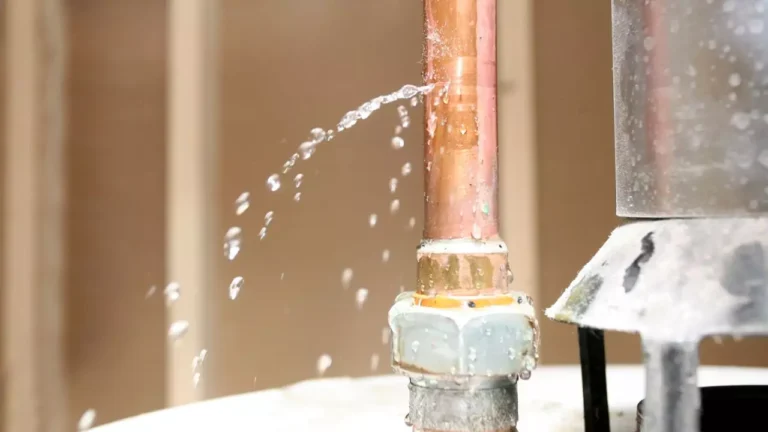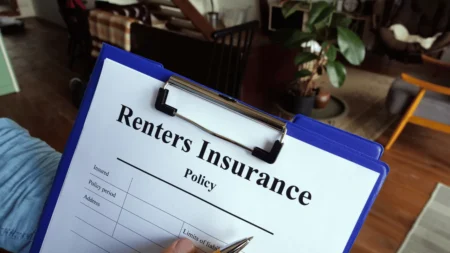Property damage by water is widespread and expensive. From 2014 to 2018, water damage and freezing made up 24.8% of homeowners insurance claims, averaging $10,849. If a leak in your house caused water damage, you may be wondering how to submit a successful water leak insurance claim and collect reimbursement.
Steps to Make a Successful Water Leak Insurance Claim
The following are the steps you should take to make a successful water leak insurance claim:
- Assess and record the damage: After discovering the water leak, assess the damage and take photographs or videos. List the damaged or missing objects, including description, value, and receipts if available. This helps you estimate and prove your claim.
- Dampen further destruction: Turn off the water supply, move furniture or items away from the water, dry wet areas, and plug holes or cracks to avoid additional water leak damage. Before your insurance company approves your claim, don’t make any permanent repairs. Otherwise, you may lose coverage or reimbursement.
- Study your insurance policy: Before contacting your insurance carrier, study your policy to understand what forms of water damage are covered and not covered, as well as the limitations, deductibles, and exclusions. Check for water damage endorsements or riders. Consult your insurance agent or broker with policy issues.
- Insurance company: Your insurance carrier should receive your water leak claim within 24 hours of discovery. You may call, email, or text your insurer. Give them the date, time, place, reason, and damage. Provide your policy number and contact details. A claims adjuster from your insurance company will help you file a claim.
- Cooperate with the claims adjuster: The claims adjuster will assess the damage, check your coverage, establish your culpability, and estimate your compensation. The claims adjuster should be given evidence of ownership, receipts, invoices, repair estimates, etc. Allow them to assess the damage. Avoid exaggerating or omitting details that may damage your claim while communicating with the claims adjuster.
- Detailed records: Keep copies of your policy, correspondence with your insurance company or claims adjuster, photos or videos of the damage, receipts or invoices for water leak-related expenses, etc. Keep track of your claim’s progress and follow up with your insurance company or claims adjuster until it’s finalized.
Common Types of Water Damage Covered by Insurance
Most homeowners insurance policies cover water damage that is sudden and accidental, such as:
- Burst pipes
- Leaky plumbing fixtures
- Overflowing sinks, toilets, bathtubs, or appliances
- Roof leaks due to rain or snow
- Storms or floods (if you have flood insurance)
- Fire sprinklers
- Vandalism
Types of Water Damage Not Covered by Insurance
However, there are some types of water damage that are not covered by most homeowners insurance policies, such as:
- Gradual leaks or seepage
- Mold or mildew
- Wear and tear or neglect
- Faulty construction or design
- Sewer backups
- Groundwater infiltration
- Floods (unless you have flood insurance)
What to Do If Your Claim is Denied or You Disagree with the Adjuster’s Assessment?
If your insurance company denies your water leak claim or you disagree with the adjuster’s damage estimate or payout amount, you may appeal:
- Request a written explanation: Your insurance company may explain why they declined your claim or how they calculated your reimbursement. Request their inspection report and any supporting papers. This will clarify their rationale and reveal any mistakes.
- Review policy and evidence: Compare your policy and proof with your insurance company’s explanation and paperwork. For a second opinion on the damage’s degree and worth, seek an independent contractor, appraiser, or expert. Inconsistencies, inaccuracies, and omissions may harm your claim.
- Negotiate with your insurance company: Talk to your insurer or claims adjuster about a reasonable payment. Present your ideas and facts politely and explain why their judgment is erroneous or unjust. Be reasonable and flexible in your expectations and open to compromise.
File a complaint or lawsuit: If your insurance company or claims adjuster won’t cooperate, you may file a complaint with your state’s insurance regulator. They may examine your case and arbitrate with your insurer. Instead, get a lawyer and sue your insurance company. It’s a last resort since it’s expensive, time-consuming, and unsafe.




